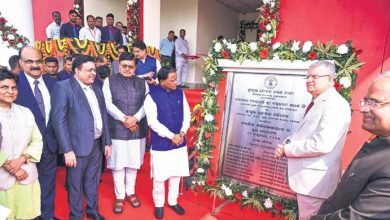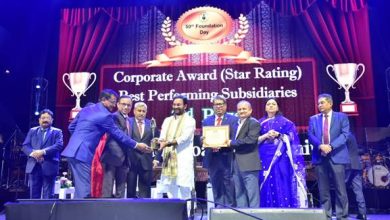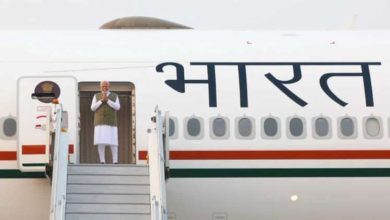Minister Dr Jitendra Singh presents Indo-US Endowment Awards
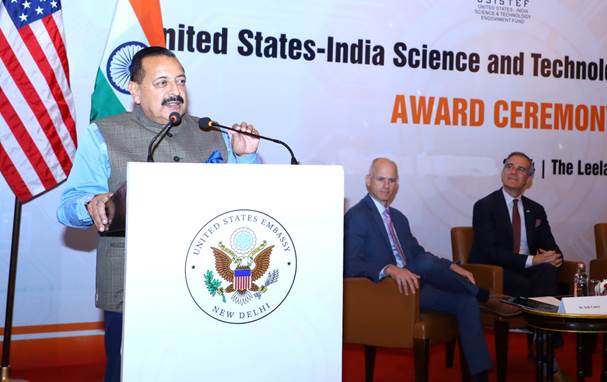
Minister Dr Jitendra Singh presents Indo-US Endowment Awards
While presenting the Indo-US Endowment awards to 17 winning teams, Union Minister of State (Independent Charge) for Science and Technology, MoS (I/C) for Earth Sciences, MoS PMO, Department of Atomic Energy, Department of Space, Personnel, Public Grievances and Pensions, Dr Jitendra Singh emphasized AI enabled collaboration between the two countries.
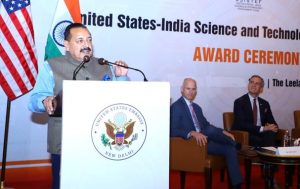
The Department of Science & Technology and the USA are working together to elevate and expand the Indo-US strategic technology partnership and to connect scientists from both the countries to collaborate on emerging technologies such as AI and smart connected cities, said Dr Jitendra Singh.
The Minister was speaking at the United States – India Science & Technology Endowment Fund (USISTEF) award function here, in which United States Ambassador Eric Garcetti also participated. These awards are given in the field of Critical and Emerging Technology.
Dr Jitendra Singh congratulated all the 17 winning teams who have been given the opportunity to work together to develop AI-enabled technologies, decision support system, GPT-powered AI, development of technologies for quantum communication, robust quantum sensors under themes of Artificial Intelligence and Quantum Technologies.
Dr Jitendra Singh said, “I am happy to say that as a part of the U.S.-India initiative on Critical and Emerging Technology (iCET), new implementing agreements have been executed between the science agencies to expand international collaboration in a range of areas to build a robust innovation ecosystem. The DST – National Science Foundation joint call in the areas of (i) Computer and Information Science and Engineering, (ii) Cyber-Physical Systems and (iii) Secure and Trustworthy Cyberspace has resulted in the award of 11 high pitch proposals.”
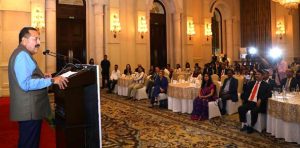
Dr Jitendra Singh congratulated all the 17 winning teams who have been given the opportunity to work together to develop AI-enabled technologies, decision support system, GPT-powered AI, development of technologies for quantum communication, robust quantum sensors under themes of Artificial Intelligence and Quantum Technologies.
Dr Jitendra Singh said, “I am happy to say that as a part of the U.S.-India initiative on Critical and Emerging Technology (iCET), new implementing agreements have been executed between the science agencies to expand international collaboration in a range of areas to build a robust innovation ecosystem. The DST – National Science Foundation joint call in the areas of (i) Computer and Information Science and Engineering, (ii) Cyber-Physical Systems and (iii) Secure and Trustworthy Cyberspace has resulted in the award of 11 high pitch proposals.”
India and the US are at the pivotal point with the technologies shaping up for the future like Artificial Intelligence, Advanced manufacturing, block chain, green energy, quantum computing, getting ready to make one of the biggest technology transformations of the century.
Appreciating the leadership of Prime Minister Shri Narendra Modi, he said, Government of India is creating an enabling innovation ecosystem with recent reforms like design linked incentives for semiconductors, PLI schemes for automobiles, drone policy and removing barriers through initiatives like faceless assessment.
Advancing the Research and Innovation Value chain and fostering the culture of innovation and entrepreneurship in young minds has witnessed a phenomenal growth in India, said Dr Jitendra Singh, as evident from the Start-Up ecosystem gathering speed, scale and momentum. From 350 odd start-ups in 2014, the number swelled to over 1,40,000 Start-Ups. India is also home to over 110 Unicorns where 23 of them emerged only last year, which is a sign of India’s rapid upward ride on STI (Science, Technology & Innovation) ladder.
Governments of both the countries established the USISTEF in 2009 for supporting promising joint US India entrepreneurial initiatives on co-developing products or technologies that are beyond the ideation stage. Over the years, the program has had a significant impact, both in terms of the development of new products and technologies and in seeding new sustainable collaborations between US and India inventors.



